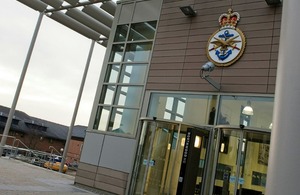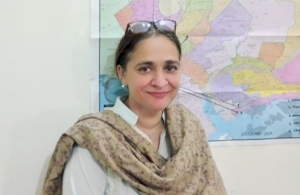Number of ex-offenders in work picks up speed due to turbo-charged push to cut crime
The number of ex-prisoners in work has increased dramatically following the Deputy Prime Minister’s drive to make our streets safer, cut crime and protect the public by getting offenders skilled up while behind bars.
Over the last year, the proportion of ex-offenders in work 6 weeks after release increased by more than half – with tough new targets on employment to be introduced for prison chiefs.
As part of the push, the Deputy Prime Minister was joined by four-time Formula One world champion, Sebastian Vettel, at HMPYOI Feltham, London, today to open a new car workshop that’ll train up young offenders in auto maintenance and repair – helping them make the move from prisons to pistons on release.
Evidence shows that getting prisoners into work while behind bars works, with job waiting for them back in the community on release are significantly less likely to go on to reoffend.
And 9 out of 10 employers who have taken on ex-prisoners say they are ‘motivated, reliable, good at their job and trustworthy’ – making it a win-win all round.
Deputy Prime Minister, Dominic Raab, said:
Getting prisoners into work is a crucial way to reduce reoffending – which is why game-changing initiatives like the mechanics’ workshop at HMYOI Feltham are so important.
Together with abstinence-based drug treatment and facilities to maintain family ties, our prisons are turning offenders away from a life of crime – cutting crime and protecting the public.
Sebastian Vettel said:
I believe teaching useful skills, such as car mechanics, is a great way to help rehabilitate young people who have made mistakes in their past. It should not be the case that teenagers are written off at such a young age.
This workshop means that these youngsters, when released, will have a chance to take a new direction in life and can make a valuable contribution to society.
The Prisons White Paper – the Deputy Prime Minister’s strategy to reduce reoffending and keep the public safe – puts a laser sharp focus in getting prisoners into work both behind bars and on release, with new individual targets for prison governors.
And in March, 20 big-name businesses including Lotus Cars and Sodexo pledged to head up new Employment Advisory Boards in prisons – acting as a link between jails and employers to make sure offenders use their time in jail to gain the skills they need to head straight into work on release.
Over the next 2 years we will also:
- Hire new education, work and skills specialists to improve education and training in prisons on offer to get more offenders into work on release
- Set up a new work innovation fund to support prisons in working with more employers to and meet the needs of local businesses and the economy and smooth the path from prison to employment
- Overhaul literary education in prisons to improve the reading and writing of all offenders so they are better placed to get a job
Notes to editors
New figures published today show:
- The proportion of persons released from custody employed at six weeks from their release rose by 6 percentage points to 16% between April 2021 and March 2022. This is an increase of more than half (57%).
- The proportion of persons released from custody employed at six months from their release rose by 9 percentage points to 23% between April 2021 and March 2022. This is an increase of almost two thirds (66%)


